Your air conditioner just stopped cooling effectively. You reach for your phone to call an HVAC company, but then you pausedo you need AC servicing or AC repair? While these terms are often used interchangeably, they represent fundamentally different approaches to maintaining your cooling system. Understanding the distinction can save you hundreds of dollars, extend your AC’s lifespan by years, and prevent emergency breakdowns during Houston’s brutal summer heat.
At 75 Degree AC, we’ve diagnosed thousands of cooling problems across Houston since 2016, and one pattern emerges consistently: homeowners who understand the difference between servicing and repairing make better decisions about their HVAC investments. This guide breaks down everything you need to know about AC servicing versus AC repairing, helping you determine exactly what your system needs and when.
Understanding AC Servicing: Preventive Maintenance for Long-Term Performance
AC servicing, also called preventive maintenance or tune-ups, is the proactive approach to keeping your air conditioning system running efficiently. Think of it as a routine checkup for your cooling systemsimilar to changing your car’s oil before the engine fails, not after.
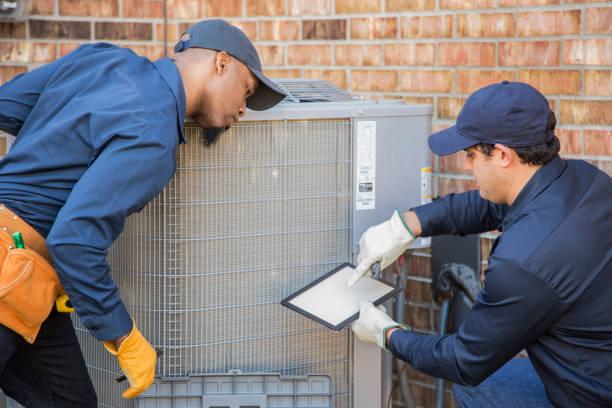
What Does AC Servicing Include?
A comprehensive AC service visit involves systematic inspection, cleaning, and optimization of your entire cooling system. Our licensed technicians at 75 Degree AC perform a detailed 20-point inspection during every AC maintenance appointment, ensuring every component operates at peak efficiency.
Standard AC servicing typically includes:
- Air filter replacement or cleaning to maintain proper airflow and indoor air quality
- Condenser and evaporator coil cleaning to remove dirt, debris, and biological growth that reduces efficiency
- Refrigerant level check to ensure optimal cooling capacity without overworking the compressor
- Electrical connection inspection and tightening to prevent power failures and fire hazards
- Thermostat calibration to verify accurate temperature readings and proper cycling
- Condensate drain clearing to prevent water damage and mold growth
- Blower motor and fan blade inspection to identify wear before components fail
- Ductwork visual inspection for leaks or damage affecting system efficiency
- System performance testing to measure actual cooling output versus manufacturer specifications
The Goals of Regular AC Servicing
Preventive maintenance serves multiple strategic purposes beyond simply keeping your AC running. According to the U.S. Department of Energy, regular AC servicing can reduce energy consumption by 15-20% compared to neglected systems. This translates to significant savings on monthly utility bills, especially in Houston’s climate where air conditioners run nearly year-round.
Regular AC tune-ups accomplish four primary objectives:
- Maximize energy efficiency: Clean coils, proper refrigerant levels, and well-lubricated motors consume less electricity while delivering better cooling performance.
- Extend equipment lifespan: AC systems receiving annual maintenance typically last 15-20 years versus 10-12 years for neglected units, according to HVAC industry data.
- Prevent costly emergency repairs: Early detection of worn components allows for planned repairs during off-peak seasons when parts and labor cost less.
- Maintain manufacturer warranty coverage: Many AC manufacturers require proof of annual professional maintenance to honor warranty claims on major components.
Understanding AC Repair: Fixing Problems When They Occur
AC repair addresses specific malfunctions, breakdowns, or performance failures in your cooling system. Unlike preventive servicing, repairs are reactivesomething has already gone wrong, and you need a technician to diagnose and fix the problem.
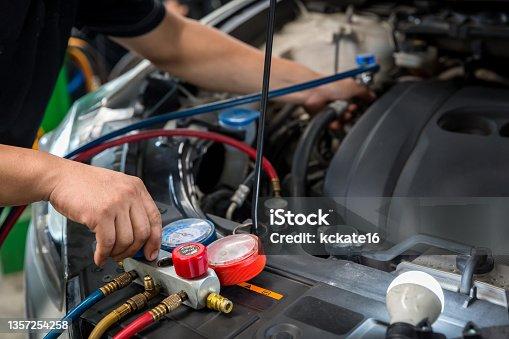
Common AC Repair Issues Houston Homeowners Face
Our AC repair team in Houston responds to dozens of service calls daily, and certain problems appear repeatedly, especially during peak cooling season from May through September. Understanding these common failures helps you recognize when repair service becomes necessary.
Typical AC repair scenarios include:
- Refrigerant leaks: Causing reduced cooling capacity, ice formation on coils, and potential compressor damage if left unaddressed
- Compressor failure: The heart of your AC system, representing one of the most expensive repair costs at $1,200-$2,800 for residential units
- Capacitor or contactor failure: Preventing your AC from starting or causing it to shut off prematurely during cooling cycles
- Blower motor burnout: Resulting in weak airflow, no air movement, or unusual grinding noises from indoor unit
- Frozen evaporator coils: Often caused by restricted airflow, low refrigerant, or dirty filters, preventing proper heat exchange
- Thermostat malfunction: Leading to temperature discrepancies, constant cycling, or complete system shutdown
- Drainage problems: Clogged condensate lines causing water leaks, system shutdowns, and potential water damage
- Electrical component failure: Including burnt wiring, tripped breakers, or faulty control boards affecting system operation
The Repair Process: Diagnosis to Resolution
Professional AC repair follows a systematic diagnostic approach. At 75 Degree AC, our licensed technicians arrive with fully-stocked service vehicles, allowing us to complete most repairs during the initial visit without waiting for parts orders.
A typical repair appointment progresses through these stages:
- Initial assessment: The technician gathers information about symptoms, when problems started, and any unusual sounds or behaviors you’ve noticed.
- System diagnosis: Using specialized diagnostic tools, the technician tests electrical components, measures refrigerant pressures, and evaluates system performance.
- Problem identification: Once the root cause is determined, the technician explains the issue in clear terms without technical jargon.
- Repair estimate: You receive transparent pricing for the recommended repair, including parts and labor, with no hidden fees.
- Repair execution: Upon your approval, the technician completes the repair using quality replacement parts backed by warranty coverage.
- Testing and verification: The system is tested thoroughly to ensure proper operation and that the original problem is completely resolved.
Key Differences Between AC Servicing and AC Repairing
While both servicing and repairing involve HVAC technicians working on your air conditioning system, the timing, purpose, costs, and outcomes differ significantly. This comparison table clarifies the distinctions:
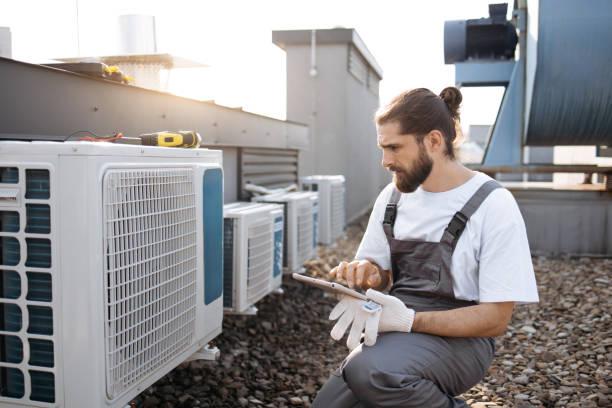
| Aspect | AC Servicing | AC Repairing |
|---|---|---|
| Timing | Scheduled preventively (typically spring and fall) | Reactive, when problems occur |
| Primary Purpose | Prevent problems and optimize performance | Fix existing malfunctions or breakdowns |
| System Condition | System is currently functioning | System has failed or is malfunctioning |
| Typical Cost | $89-$150 per visit | $150-$2,500+ depending on issue |
| Duration | 60-90 minutes per appointment | 1-4 hours depending on complexity |
| Urgency Level | Low – can be scheduled at convenience | High – often requires same-day service |
| Frequency | 1-2 times annually | As needed when problems arise |
| Long-term Impact | Reduces future repair needs by 40-60% | Addresses immediate problem but doesn’t prevent future issues |
When Servicing Becomes Repair
During routine AC servicing appointments, technicians occasionally discover problems requiring immediate repair attention. This discovery is actually one of the primary values of preventive maintenancecatching small issues before they become expensive emergencies.
For example, during a routine maintenance visit, our technician might notice a capacitor showing early signs of failure. While your AC still runs, this component will likely fail within weeks or months, potentially causing secondary damage to the compressor. Addressing it during the service visit costs significantly less than an emergency repair call when your AC stops working during a 98-degree Houston afternoon.
When Do You Need AC Servicing?
Knowing when to schedule preventive AC servicing helps you maximize system performance while minimizing unexpected repair costs. Industry experts and HVAC manufacturers recommend specific timing for maintenance appointments based on climate, usage patterns, and equipment age.
Optimal Timing for AC Maintenance
In Houston’s climate, where air conditioners run nearly year-round with minimal winter rest, timing your AC servicing strategically ensures your system is ready for peak demand periods. We recommend scheduling maintenance visits during these windows:
- Spring (March-April): The ideal time for pre-summer maintenance, preparing your system for the intense cooling demands of May through September
- Fall (October-November): A second annual checkup ensures your system remains efficient through the extended Houston cooling season
- After major weather events: Following severe storms or flooding, an inspection ensures no damage affects system operation
- Before warranty expiration: Many manufacturers require annual professional maintenance documentation for warranty claims
Warning Signs That Servicing Is Overdue
Even if you’ve skipped your scheduled maintenance, certain indicators suggest your AC needs professional attention before minor issues escalate into major repairs:
- Rising energy bills without corresponding increases in usage or rate changes
- Reduced airflow from supply vents throughout your home
- Inconsistent cooling with some rooms significantly warmer than others
- Longer run times to reach desired temperature settings
- Unusual odors when the system operates, including musty or burning smells
- Visible dust accumulation around vents or on furniture despite regular cleaning
- More than 12 months since the last professional maintenance visit
When Do You Need AC Repair?
Unlike scheduled servicing, AC repair becomes necessary when your system exhibits clear signs of malfunction or failure. Recognizing these symptoms early and calling for professional repair promptly can prevent minor issues from causing catastrophic equipment failure.
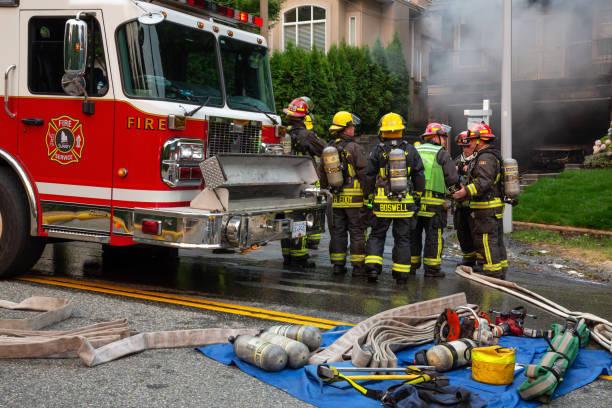
Unmistakable Signs You Need Immediate AC Repair
Some AC problems demand immediate professional attention. Our 24/7 emergency service team responds to these critical situations throughout Houston and surrounding areas:
- Complete system failure: Your AC won’t turn on at all, or starts briefly then shuts off immediately
- No cold air production: The system runs but produces only warm or room-temperature air
- Ice formation: Visible ice on outdoor unit, indoor coils, or refrigerant lines during operation
- Water leaks: Pooling water around indoor unit or water stains on ceilings/walls near ductwork
- Unusual noises: Grinding, squealing, banging, or hissing sounds that weren’t present before
- Burning smells: Electrical burning odors suggesting wiring problems or motor failures
- Breaker trips repeatedly: Circuit breaker shutting off power to AC unit multiple times
- Thermostat unresponsive: Control panel not responding or displaying error codes
The Cost of Delaying Necessary Repairs
Many homeowners hesitate to call for AC repair, hoping the problem resolves itself or attempting DIY fixes found online. This delay rarely saves money and often increases total repair costs substantially.
Consider this real-world example from our service records: A Houston homeowner noticed reduced cooling but delayed calling for repair, thinking it might be normal for extreme heat. The actual problem was a small refrigerant leak. Over three weeks, the leak depleted refrigerant levels, causing the compressor to work harder without proper cooling. The compressor eventually failed from overheating, turning a $350 refrigerant leak repair into a $2,100 compressor replacement.
According to HVAC industry research, addressing AC problems within the first week of symptom onset reduces average repair costs by 40-60% compared to delayed repairs after complete system failure.
Cost Comparison: Servicing vs. Repairing Your AC System
Understanding the financial implications of preventive servicing versus reactive repair helps homeowners make informed decisions about HVAC investments. The numbers clearly demonstrate that regular maintenance reduces total ownership costs over your system’s lifespan.
Average AC Servicing Costs in Houston
Professional AC maintenance in Houston typically ranges from $89 to $150 per visit, depending on system size, age, and service scope. At 75 Degree AC, we offer transparent pricing with no hidden fees, providing detailed quotes before beginning any work.
Annual maintenance investments include:
- Single visit: $89-$150 for comprehensive inspection, cleaning, and minor adjustments
- Annual maintenance plan: $180-$250 covering two seasonal visits plus priority service and discounts
- Commercial systems: $150-$400 depending on equipment size and complexity
Common AC Repair Costs Houston Homeowners Face
Repair costs vary significantly based on the failed component, system accessibility, and whether repair occurs during regular hours or requires emergency service. These average costs reflect typical Houston market rates for common repairs:
- Thermostat replacement: $150-$350
- Capacitor or contactor: $200-$450
- Refrigerant leak repair and recharge: $300-$800
- Blower motor replacement: $450-$900
- Condensate drain clearing: $100-$250
- Fan motor replacement: $400-$700
- Compressor replacement: $1,200-$2,800
- Complete system replacement: $3,500-$8,000 depending on capacity
The Financial Case for Preventive Maintenance
A simple cost analysis demonstrates the long-term savings of regular AC servicing compared to repair-only approaches:
10-Year Cost Comparison:
- With annual maintenance ($150/year): $1,500 in maintenance + average $800 in repairs = $2,300 total
- Without maintenance (repair-only approach): Average $3,800-$5,200 in repairs over same period
- Net savings: $1,500-$2,900 over 10 years, plus extended equipment lifespan and lower energy bills
Beyond direct repair savings, properly maintained AC systems consume 15-20% less electricity according to Department of Energy studies. For average Houston homes spending $200 monthly on summer cooling, this efficiency gain saves $360-$480 annuallyrecovering your maintenance investment in reduced utility costs alone.
Can You Perform AC Servicing Yourself?
While certain basic AC maintenance tasks fall within homeowner capabilities, comprehensive servicing requires professional expertise, specialized tools, and proper licensing. Understanding what you can safely handle versus what requires professional attention protects both your system and your safety.
Homeowner-Friendly Maintenance Tasks
These simple maintenance activities can be performed monthly or quarterly between professional service visits:
- Replace or clean air filters: Every 1-3 months depending on usage, pets, and allergies
- Clear debris around outdoor unit: Remove leaves, grass clippings, and vegetation within 2 feet of condenser
- Straighten bent condenser fins: Using a fin comb, gently straighten any bent aluminum fins on outdoor unit
- Check thermostat batteries: Replace batteries annually or when low battery indicator appears
- Ensure proper airflow: Keep supply and return vents unblocked by furniture or curtains
Tasks Requiring Professional Service
These critical maintenance and repair activities must be performed by licensed HVAC technicians for safety, legal compliance, and warranty protection:
- Refrigerant handling: EPA regulations require certification for anyone working with refrigerants
- Electrical component testing: High-voltage diagnostics pose serious shock and fire hazards
- Coil cleaning: Proper chemical cleaning requires specialized equipment and knowledge
- System calibration: Precise adjustments to refrigerant charge, airflow, and controls
- Gas furnace inspection: Carbon monoxide risks require professional combustion analysis
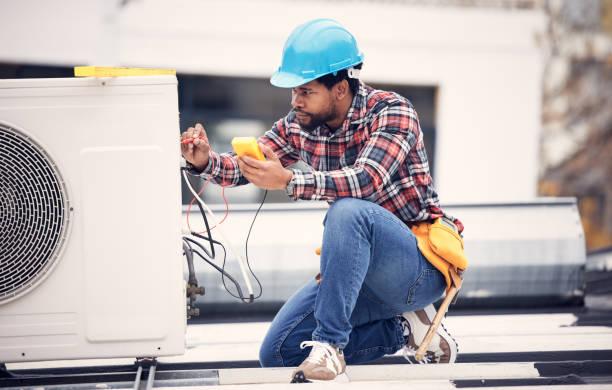
Expert Insights: What HVAC Professionals Say
“The single biggest mistake Houston homeowners make is treating their AC like a cardriving it until something breaks, then repairing only that specific component,” explains Mike Rodriguez, Lead Technician at 75 Degree AC with over 15 years of HVAC experience. “Air conditioning systems are interdependent. When one component fails, it creates stress on others. Regular servicing identifies these cascade failures before they happen.”
Rodriguez continues: “We frequently see compressor failures that could have been prevented with $150 worth of annual maintenance. Instead, homeowners face $2,000+ compressor replacements. The mathematics of preventive maintenance clearly favor regular servicing, but the real benefit is avoiding the discomfort of AC failure during Houston’s summer heat.”
Industry data supports these observations. According to ACCA (Air Conditioning Contractors of America), properly maintained residential AC systems experience 40-50% fewer emergency repair calls compared to neglected systems. Additionally, maintained systems retain 95% of their original efficiency after 10 years, while unmaintained systems decline to 70-80% efficiency over the same period.
Making the Right Choice for Your Houston Home
Understanding the difference between AC servicing and AC repairing empowers you to make informed decisions about your cooling system’s care. The key takeaway is simple: servicing prevents problems proactively, while repairing fixes problems reactivelyand prevention always costs less than cure.
For Houston homeowners, regular AC servicing isn’t optional luxury maintenanceit’s essential protection against expensive repairs and uncomfortable breakdowns during our extended cooling season. Your air conditioner represents a significant investment, typically $4,000-$8,000 for complete system replacement. Protecting that investment with $150 annual maintenance appointments makes sound financial sense.
Developing Your AC Care Strategy
Optimal AC system care combines both regular servicing and prompt repair attention when problems arise. Here’s your action plan:
- Schedule annual spring maintenance before peak cooling season begins (March-April ideal)
- Consider bi-annual service if your system runs year-round or is over 10 years old
- Address repair needs immediately when you notice performance changes or unusual symptoms
- Choose a reputable HVAC company like 75 Degree AC offering both maintenance and repair services
- Keep maintenance records for warranty claims and system history reference
Why Houston Homeowners Choose 75 Degree AC
Since 2016, 75 Degree AC has provided Houston residents with honest, professional HVAC services they can trust. Our licensed technicians bring 5+ years of prior experience to every service call, ensuring your AC receives expert care whether you need routine maintenance or emergency repair.
We distinguish ourselves through:
- Transparent pricing: Detailed quotes provided upfront with no hidden fees or surprise charges
- Same-day service availability: Fast response times when your cooling system fails
- Comprehensive maintenance plans: Affordable programs covering bi-annual servicing with priority scheduling
- All major brands serviced: Experience with every residential and commercial HVAC system
- Locally owned and operated: We live and work in Houston, serving our neighbors and community
Whether you need your annual AC tune-up or face an unexpected cooling system failure, our team provides the expertise and service quality Houston homeowners have trusted for years. We serve Houston and surrounding areas including Katy, Sugar Land, The Woodlands, Cypress, and Pearland.
Take Action: Protect Your AC Investment Today
Don’t wait until your air conditioner fails during Houston’s hottest days. Proactive maintenance protects your comfort, reduces your energy bills, and prevents expensive emergency repairs. Whether your system needs routine servicing or immediate repair attention, 75 Degree AC delivers the expert care your cooling system deserves.
Call (713) 598-2737 now to schedule your AC maintenance appointment or request emergency repair service. Our licensed technicians are ready to help you keep your home cool and comfortable all year long. Visit us at 4800 W 34th St, Ste C50F, Houston, TX 77092, or book your service appointment online at 75degreeac.com.
For commercial HVAC needs, explore our specialized commercial installation and maintenance programs designed for Houston businesses requiring reliable climate control.
Frequently Asked Questions
How often should I have my AC serviced in Houston?
Houston’s extended cooling season and high humidity require at least one annual AC servicing appointment, ideally scheduled in spring before peak summer heat. Homes with older systems (10+ years), large households, or year-round AC operation benefit from bi-annual servicing in spring and fall. Regular maintenance every 6-12 months maximizes efficiency and prevents unexpected breakdowns.
Can AC servicing prevent all repairs?
While regular servicing dramatically reduces repair frequency by 40-60%, it cannot eliminate all potential failures. Components eventually wear out regardless of maintenance quality. However, servicing catches most problems early when repairs cost significantly less, and well-maintained systems experience far fewer emergency failures requiring expensive after-hours service calls.
What’s the difference between an AC tune-up and AC repair?
An AC tune-up is preventive maintenance performed on functioning systems to optimize performance and prevent problems. AC repair addresses specific malfunctions or failures after they occur. Tune-ups are scheduled proactively and cost $89-$150, while repairs are reactive responses to problems and cost $150-$2,500+ depending on the issue severity.
Should I repair or replace my old AC system?
Consider replacement rather than repair when: (1) your system is over 15 years old, (2) repair costs exceed 50% of replacement value, (3) refrigerant type is obsolete (R-22/Freon), or (4) the system requires frequent repairs despite maintenance. For newer systems under 10 years old, most repairs remain cost-effective compared to replacement, especially with regular maintenance extending equipment lifespan.
How much does AC servicing cost compared to typical repairs?
Standard AC servicing costs $89-$150 per visit in Houston, while common repairs range from $200 for minor component failures to $2,500+ for major issues like compressor replacement. Over a 10-year period, homeowners investing in annual maintenance spend approximately $2,300 total (maintenance plus reduced repairs), compared to $3,800-$5,200 for repair-only approachesa savings of $1,500-$2,900.
What happens during a professional AC service visit?
Professional AC servicing includes comprehensive system inspection, cleaning of coils and components, refrigerant level verification, electrical connection testing, thermostat calibration, condensate drain clearing, air filter replacement, and performance testing. Technicians also identify potential problems requiring attention, provide maintenance recommendations, and document service completion for warranty purposes. The entire process typically takes 60-90 minutes.
Is emergency AC repair more expensive than scheduled service?
Yes, emergency AC repair typically costs 50-100% more than the same repair during regular business hours due to after-hours service fees, expedited parts procurement, and weekend/holiday premiums. Emergency calls also often involve more severe damage since problems escalated beyond early warning signs. Preventive maintenance and prompt attention to minor issues help avoid expensive emergency service situations.
Can I perform AC servicing myself to save money?
Homeowners can safely perform basic tasks like filter changes, outdoor unit debris removal, and keeping vents unobstructed. However, comprehensive servicing requiring refrigerant handling, electrical diagnostics, chemical coil cleaning, and system calibration legally requires EPA certification and professional licensing. DIY attempts at these tasks risk system damage, personal injury, warranty voidance, and violation of environmental regulations.
